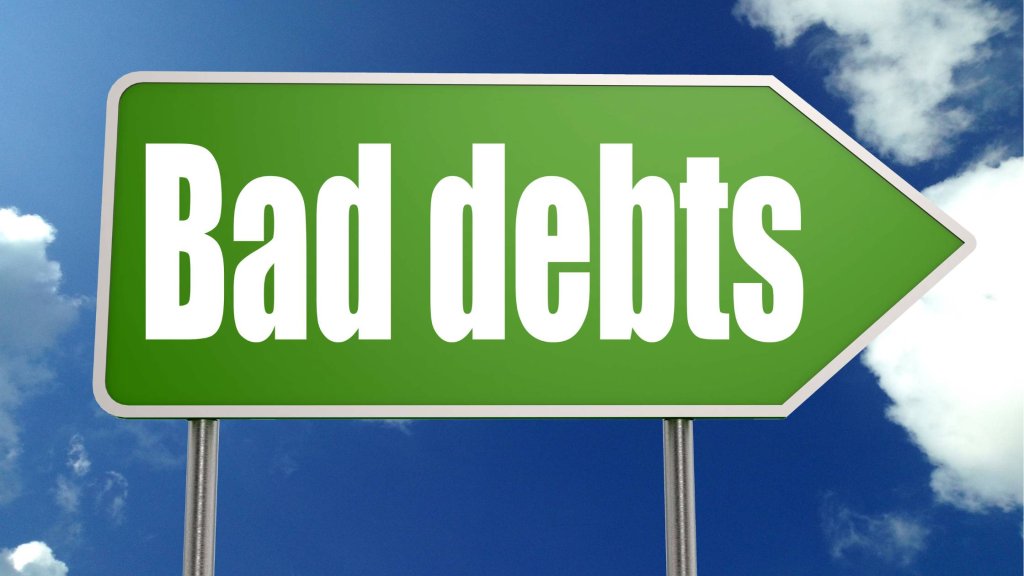VIEW BY TOPIC
- Finding Customers
- Business Systems
- Managing Employees
- Leadership
- Managing Money
Related Posts

Ready to Grow Your Business Fast?
Here’s How I Grew Five Businesses, and Eventually Sold One to a Fortune 500 Company.

9 Best Practices To Safeguard Your Business From Bad Debts
Bad debts typically occur when you’re unable to collect payments for products delivered or services rendered. It becomes expenses you pay instead of the income you expect to get, resulting in reduced working capital and profitability.
It also means you’ll have less cash for your daily expenses. You may even struggle with paying your bills, hindering your company’s growth. Depending on how much bad debt your business incurs, it’s possible to go bankrupt or become insolvent.
Fortunately, there are various best practices to protect your business from bad debts. One is to partner with professionals who’ve already mastered business intelligence by industry. With their expertise, you can guard your business against bad debts and identify sales opportunities, keeping a sustainable cash flow.
The other practices you can try to lessen bad business debts are as follows:

-
Establish Robust Collection Tactics
Sometimes, taking a hard line on collections is tricky, especially if you’re dealing with your valued customers. But it’s always best to adhere to your company’s credit terms from the beginning.
So, whenever your customers have overdue accounts, chase them immediately and act according to your policies or terms. For example, you can put their accounts on hold. Doing so may also help you manage your business working capital better.
-
Set And Stick To Your Payment Terms
Setting payment terms in writing with every client is crucial when running a business. It protects your company and creates a clear understanding of your conditions. Be sure your terms detail any associated costs and reiterate your invoice policies.
When your terms are clear, you won’t find it hard to enforce them. Plus, you’ll avoid customers paying on their own terms.
-
Credit Check Customers To Evaluate Creditworthiness
Running a successful business takes time, money, and other resources. Once you extend credit to your customers, you’re lending them cash, causing your company to lose money. You must assess your customers’ creditworthiness to protect your business from bad debts. As a result, you’ll know their likelihood to pay debts, and your company may prevent dealing with bad debts in the future. Moreover, you’ll maintain positive cash flow and avoid possible problems concerning your company’s daily cash requirements.
The credit limits you set and your customers’ creditworthiness also help you make strategic decisions to target prospects who can be fast-paying customers.
-
Maintain Communication With Customers
Maintaining communication with your customers is an efficient way to prevent bad debts. Client relationships have to be tended to like other relationships.
Most customers have different financial situations. While some forget their due dates, others may be busy juggling their needs. The key to avoiding bad debts is to continue communication with empathy and sympathy while remaining compliant with the laws and regulations. Depending on the situation, negotiate to resolve the situation and maintain regular cash flow.
-
Give Incentives For Early Payers
Collecting debts or payments may sometimes be challenging. Therefore, if you have early payers, why not give them a few incentives? For example, you can offer them a small discount on their next purchase for timely payments.
Having incentives in your payment terms may urge your customers to pay on time or as early as possible. Besides, it’s a more favorable strategy over issuing penalties or late fees for outstanding invoices. It’s because these fees may likely make your customers recalcitrant to pay and get them offside.
-
Settle Payment Disputes Quickly
Another best practice to protect your company from bad debts is settling customer disputes as quickly as possible. Typically, they’re used as an excuse for non-payment, so your business won’t be paid until you resolve the dispute.
Luckily, such disputes can be resolved quickly by allowing customers to communicate with you online. For instance, you can establish a consumer portal where customers can submit their claims.
-
Work With Professionals
If your debt collection tactic isn’t working, consider working with professionals. These days, there are different reliable debt collection companies you can rely on. Not only do they help in collecting debts, but they’re also specialists in recovering monies owed. This is why most businesses work with a debt collection agency for their outstanding invoices. However, if you’re looking for more comprehensive solutions to your financial issues, you may want to explore options such as credit counseling and debt management. These services can provide a holistic approach to managing and reducing your financial obligations.
So, rather than considering it as an extra expense for your company, a debt collection agency can be an investment. With their expertise, you’ll be able to focus on running your business instead of worrying about collecting debts.
-
Negotiate Whenever Possible

You might find that customers with previously spotless records hit a cash flow issue and can’t settle their accounts. In such circumstances, negotiated settlements will get you more than insisting on full repayment quickly.
In this case, you may need to make a judgment and agree to payment plans with your customers. But if debts are sizable, you should ensure you can trust the customers before deciding to extend further credits. You should also come down hard if the revised payment terms aren’t met.
-
Ensure Proper Document Of Transactions
Customer disputes are the primary reasons that even the best payers skip out on their bills. When something’s off about the invoice that customers receive, whether the delivery date or service, the number of items, or the amount, they may question everything on your invoice.
Be sure all details are accurate, and all invoices must include the following:
- Quantities
- Prices
- Delivery dates
- Terms agreed upon
You must also get other proof or signature that your business delivered services or products as promised. If necessary, hold proof of delivery until your invoice is paid. You might want to hold onto it longer for legal purposes. For instance, customers may ask for evidence if your business performs internal audits.
Conclusion on Bad Debts
Even if you can’t completely safeguard your business from bad debts, you can lessen the total or likelihood of bad debts by applying the above practices. You don’t have to do it alone if you’re unsure about your approach. Instead, speak to professional financial advisors who can give you the assistance and guidance you need.














